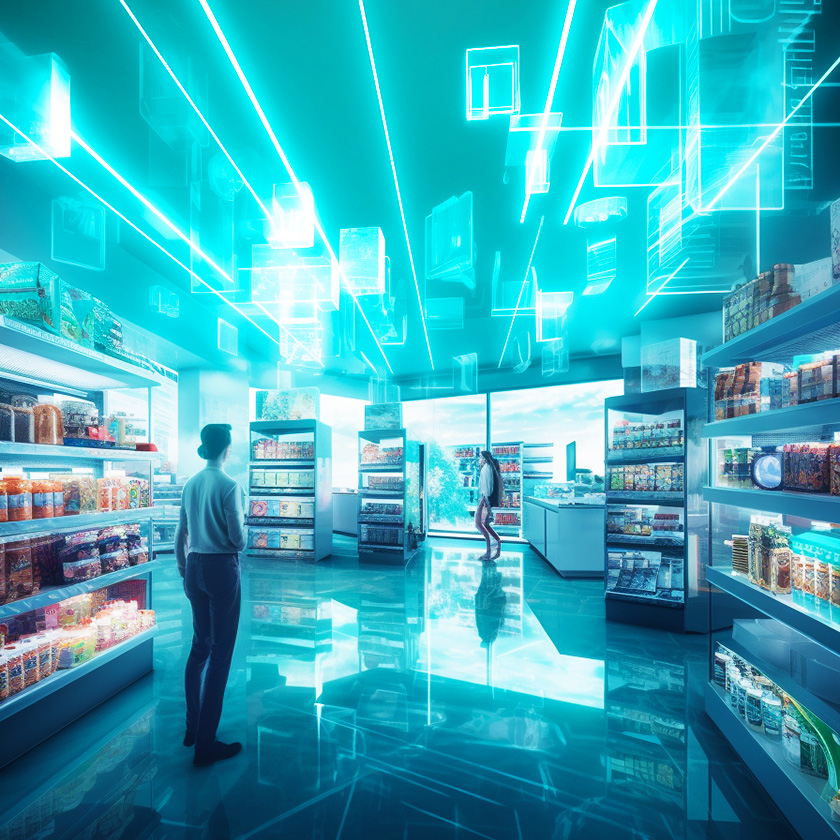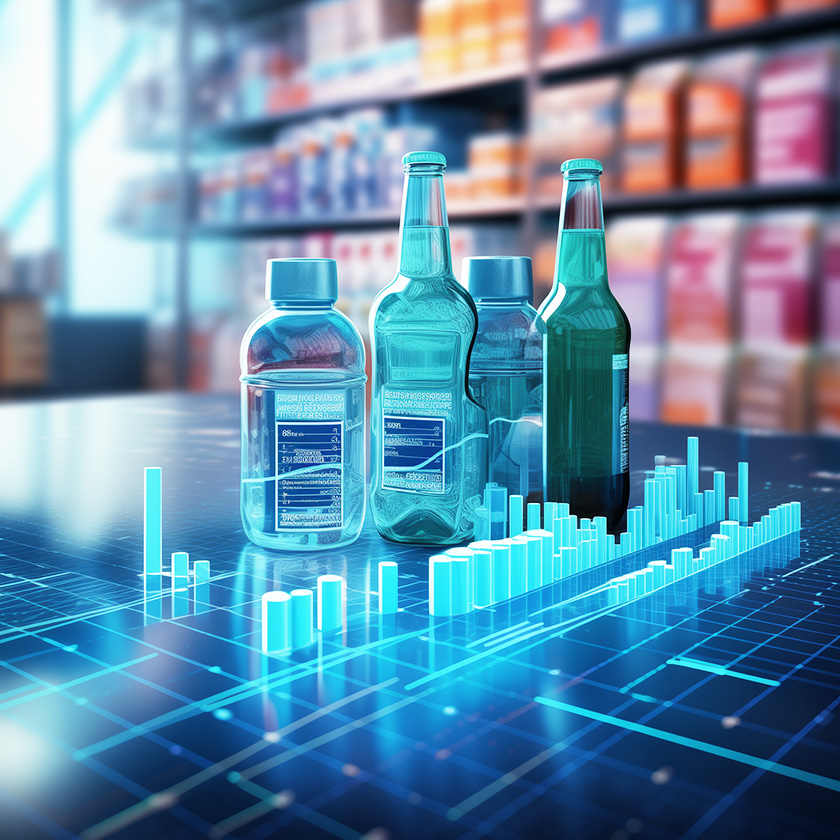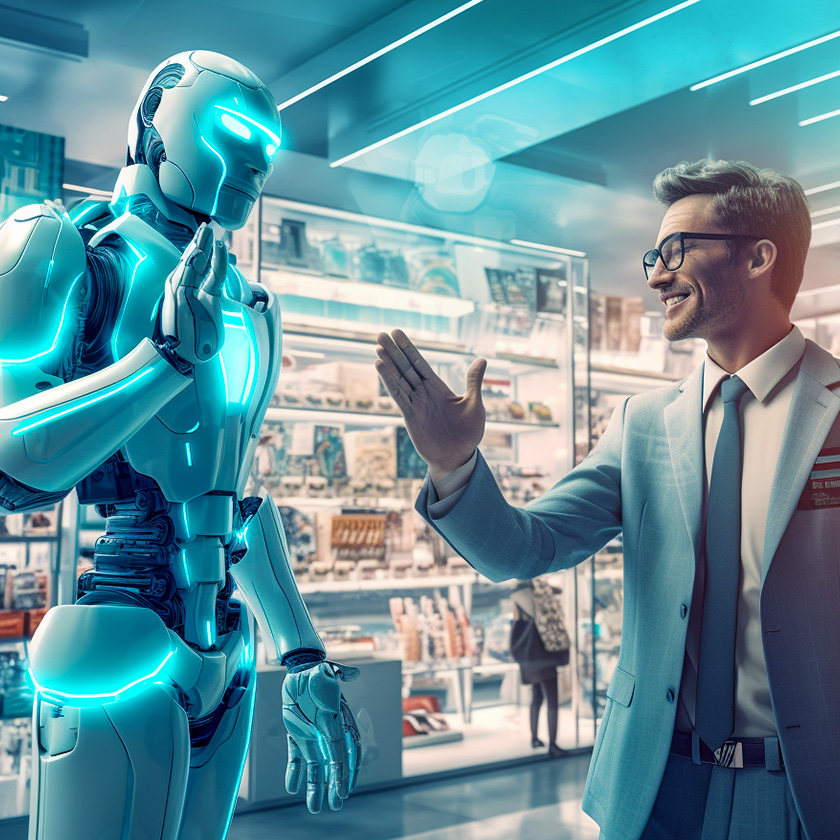In 2024, companies will face new challenges due to people’s increasing demands for a quality shopping experience, and their interest in digital innovation. So businesses will have to accommodate change.
According to statistics, experts estimated the global FMCG market at $11.3 million in 2022. By 2028, it is expected to grow to $15.2. This demonstrates a CAGR of almost 5% between 2022 and 2028.
FMCG market is developing rapidly, and therefore especially requires consideration of the trends that will shape the industry in the near future. This article will examine the key trends that will determine the development of the FMCG industry in 2024, both current ones and those that are losing ground.
Table of Сontents
- New Trends for 2024
- Still Trending since 2023
- 4. Digitalization: Innovations and AI-Powered Solutions in FMCG
- 5. FMCG E-Commerce: Online Platforms are Shaping the Future of Shopping
- 6. Personalization: Special Offers for Specific Needs
- 7. Big Data and Analytics: Deeper Insight into Consumer Behavior
- 8. Promotion with the Involvement of Influencers on Social Media: the Influence of Bloggers is Growing
- Fading Trends
- Introducing Trends is an Opportunity to Win over Consumers and Drive up Profits
New Trends for 2024

1. Sustainable Development: Integrating Environmental Practices into Business Strategies
Sustainability is becoming not just the norm, but also a key growth driver for companies. Consumers are becoming more environmentally conscious and FMCG companies are actively implementing environmentally friendly practices. Avoiding single-use packaging, using recycled materials and energy-saving technologies are considered best industry practices. Companies that focus on these aspects not only strengthen and develop their brands in the market, but also attract the attention of environmentally conscious consumers.
Example. Nestlé is committed to reducing its greenhouse gas emissions to zero by 2050. Moreover, the company has committed to making all its product packaging recyclable or reusable by 2025.

2. Customer Experience: Engagement through Virtual and Augmented Reality
Technologies are increasingly used by companies in the FMCG industry. Innovation helps offer consumers not products alone, but also experiences. People love to play; they love interactivity, so companies are starting to make use of this in product promotion. For example, augmented and virtual reality creates more engaging and interactive product experiences. Buyers get involved, become interested and loyal to the brand, as they experience positive emotions. This trend makes brands more visible and improves consumer experience.
Examples. IKEA is using virtual reality technology to create virtual tours of its stores. Shoppers can “walk” through the store, view products and even place furniture in virtual interiors of their home to see how they would look.
L’Oreal has implemented AR technology to help customers choose cosmetics. Using the mobile app, customers can try on different shades of makeup or hair colors in real time using their device’s camera. This helps consumers see how the product will look on them before purchasing.

3. Direct Distribution to Consumers: Brands Independently Interact through Online Channels
Direct distribution is becoming a strategic move for FMCG companies. Communication with consumers through own online and offline sales channels helps companies directly influence customer loyalty, get to know them better, understand their needs, and, therefore, ensure stable business growth. This approach reduces the distance between producers and consumers and provides unique opportunities to personalize services and offers.
Example. Procter & Gamble (P&G), one of the largest FMCG companies, has introduced a direct distribution strategy through its online store. Customers can purchase P&G products directly from the company’s official website, allowing the brand to connect directly with consumers, collect user feedback and provide personalized offers.
Still Trending since 2023

4. Digitalization: Innovations and AI-Powered Solutions in FMCG
Digitalization and innovation in artificial intelligence are changing processes in FMCG. They help improve production efficiency and streamline supply chains. This means that companies become more flexible and responsive to market changes.
CRM systems and automated support chats are the basis of any successful company. Now the trend is toward deeper and more complex automation, which affects not only manufacturers and distributors of FMCG/CPG goods, but also extends to consumers.
Deploying various tools and focusing on automation will allow improving customer satisfaction and creating a positive brand image. The main goal of automation is to optimize and improve the customer experience. Artificial intelligence solutions such as machine learning (ML) or computer vision (CV) help improve customer experience, enhance customer satisfaction, and thereby increase customer retention.
Example. With Goods Checker it is easier to manage the display and track out-of-stock situations. This automation will help present the product to the buyer the way you intended and ensure the availability of goods on the shelves. Thanks to the Goods Checker product, Alfa Distribution was able to effectively manage the presentation of goods on store shelves and reduce merchandising costs, which improved planogram compliance from 60% to 90% and significantly reduced the time of field audits.

5. FMCG E-Commerce: Online Platforms are Shaping the Future of Shopping
E-commerce continues to strengthen its presence in the FMCG sector by moving the purchase of everyday goods into the virtual space. The development of online platforms creates a convenient environment for consumers, allowing them to easily find, compare, and choose the best product and order products with a few clicks. The pace of life is accelerating and customers demand instant availability of goods, increasingly preferring online shopping.
Examples. Many clothing brands and stores provide the ability to order goods online. Customers can choose from a variety of collections, place orders and return items if they don’t fit. Such brands include Zara, ASOS and Amazon Fashion, Wildberries, etc. In addition, customers can order household chemicals, household goods and everyday goods in the online stores like Amazon Household, Walmart, etc.

6. Personalization: Special Offers for Specific Needs
In a world where individuality is valued more than ever, personalization is becoming a key element of FMCG marketing strategies. Companies use consumer data to create offers that meet specific needs. This allows creating strong connections with customers, deepening engagement and improving customer satisfaction.
Examples. Amazon makes active use of machine learning algorithms to provide personalized recommendations. They analyze purchase history, product views and other data to offer users items that will be of interest to them.
Coca-Cola launched the “Share a Coke” campaign, where consumers’ names were printed on soda bottles. This created a personalization effect, allowing people to share drinks with their friends’ names or choose bottles with their own names.

7. Big Data and Analytics: Deeper Insight into Consumer Behavior
The use of big data and analytics is becoming part of the FMCG marketing strategy. Companies analyze customer data to better understand their preferences, behavior and needs. This ensures that marketing campaigns are finely tuned, products are modified according to customer requirements, and much more. All this helps the company better adapt to changes in the market.

8. Promotion with the Involvement of Influencers on Social Media: the Influence of Bloggers is Growing
Still a sufficient factor for businesses in the FMCG industry is the growth of digital marketing. Conventional TV and Google advertising continues to lose efficiency. New channels are required.
For example, buyers follow bloggers and influencers on all kinds of social platforms, such as Tik Tok, Instagram, YouTube, etc.
Collaboration with influencers on social media is becoming an effective method of promotion. Bloggers create trusting connections with the audience and influence purchasing behavior. FMCG companies are taking advantage of this as they seek to improve the appeal of products to the younger, digital generation.
Fading Trends

1. Conventional Retail Formats
Conventional retail formats are losing their attractiveness due to the development of digitalization and e-commerce. Consumers prefer convenience and brick-and-mortar stores are fading.

2. Non-eco-friendly
As consumers become more environmentally aware, products and technologies that are not eco-friendly become less attractive. Ignoring environmental requirements is at risk of losing market share as consumers choose products that care about nature and sustainability.

3. Mass Unification
With the growing demand for uniqueness of products, mass unification is losing its attractiveness. Consumers desire individuality, which threatens the mass production of standardized products.

4. Premium Products
The trend towards increasing the premium quality of products is becoming less relevant as consumers value affordability and functionality. Brands that have strived for a premium positioning are forced to rethink their strategies and focus on quality and affordability.
Introducing Trends is an Opportunity to Win over Consumers and Drive up Profits

FMCG industry in 2024 faces new challenges. Companies are adapting to trends and offering products that respond to consumer needs and participate in creating a sustainable future. The digital age presents opportunities, and brands that incorporate these trends into their strategy will be positioned to lead the way.




